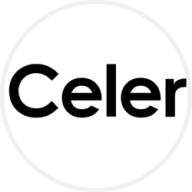Kyber Network (KNC) is a liquidity protocol built on the Ethereum network, enabling seamless token swaps. Through its API support, Kyber Network facilitates integrations with various decentralized applications (DApps), allowing users to trade and swap tokens directly from their wallets.
The protocol ensures secure and decentralized multi-chain liquidity, supporting the development of applications such as decentralized finance (DeFi) platforms and decentralized exchanges (DEXs). Kyber Network prioritizes speed and affordability to provide efficient and accessible token trading experiences.
What is Kyber Network?
Kyber Network is a liquidity aggregator and multi-hub network of liquidity protocols focusing on simplifying and increasing accessibility to DeFi. KNC, also known as Kyber Network Crystal, is the native token of the Kyber Network ecosystem. It serves multiple purposes within the network, including governance participation, rewards distribution, and fee payments.
The Kyber Network team
The Kyber Network team consists of various individuals, including Loi Luu, the Founder of Kyber Network; Thong Tran, a smart contract engineer; and Quoc-Cuong Tran, a DeFi researcher. The team includes other notable members contributing to the project's development and success. Additionally, Vitalik Buterin, the co-founder of Ethereum, has served as an advisor to the Kyber Network project, providing guidance and expertise.
How does Kyber Network work?
Kyber Network enables fast cryptocurrency trading by consolidating multiple liquidity providers and facilitating high-liquidity token swaps. Liquidity providers within the ecosystem get rewarded for providing liquidity. The nature of the rewards depends on the type of trade the liquidity provider supports. If the liquidity is meant to support ETH to USDT trades, the provider gets ETH rewards.
KyberSwap.com, a DEX, is the ecosystem’s most popular product. This platform helps you get the best rates for token swaps by checking through multiple decentralized exchanges. Besides sourcing liquidity from DEXs, Kyber Network also boasts the KyberDAO for proposal vetting, the Elastic Protocol for helping access customized liquidity pools, a developer platform, a dynamic market maker, and a “Discover” feature to identify trending tokens.
Kyber Network’s native token: KNC
KNC, or the Kyber Network Crystal, is the native ERC-20 important to the ecosystem. It functions as both a governance and utility token, offering staking capabilities. With a fixed supply cap of 223.36 million tokens, KNC holders can stake their tokens within the KyberDAO to participate in voting on specific proposals. Stakers receive ETH as reward for their participation.
KNC use cases
KNC tokens have multiple use cases within the Kyber Network ecosystem. In addition to their role as a governance token and support for staking within KyberDAO, KNC tokens contribute to network growth. They can integrate with DeFi platforms and provide KNC-related liquidy on centralized exchanges (CEXs) and DEXs.
One interesting use case of the KNC token is its role in the fee structure of Kyber Network. A small fee is paid whenever a specific token pair is traded using the network. These fees are used to buy back KNC tokens from the market. The purchased tokens are then burned, creating a deflationary effect on the token supply. The buyback and burning process is executed through smart contracts, ensuring a trustless and transparent mechanism.
KNC distribution
The initial distribution plan for KNC tokens is outlined as follows:
- 34.48 percent of KNC tokens are designated for private sales and early project investors.
- 26.54 percent were distributed through public sales.
- 19.35 percent of the tokens are allocated to the team. All of these tokens are now unlocked.
- 19.63 percent are reserved for Kyber Network's own reserves.
How unique is Kyber Network?
Kyber Network stands out as a liquidity network by successfully supporting over 100 projects since its inception. Its versatility is evident through its deployment on various blockchains, including Binance (BNB), Polygon (MATIC), Fantom (FTM), and more. This broad integration across multiple chains adds to Kyber Network's credibility, popularity, and adoption within the crypto community.




































